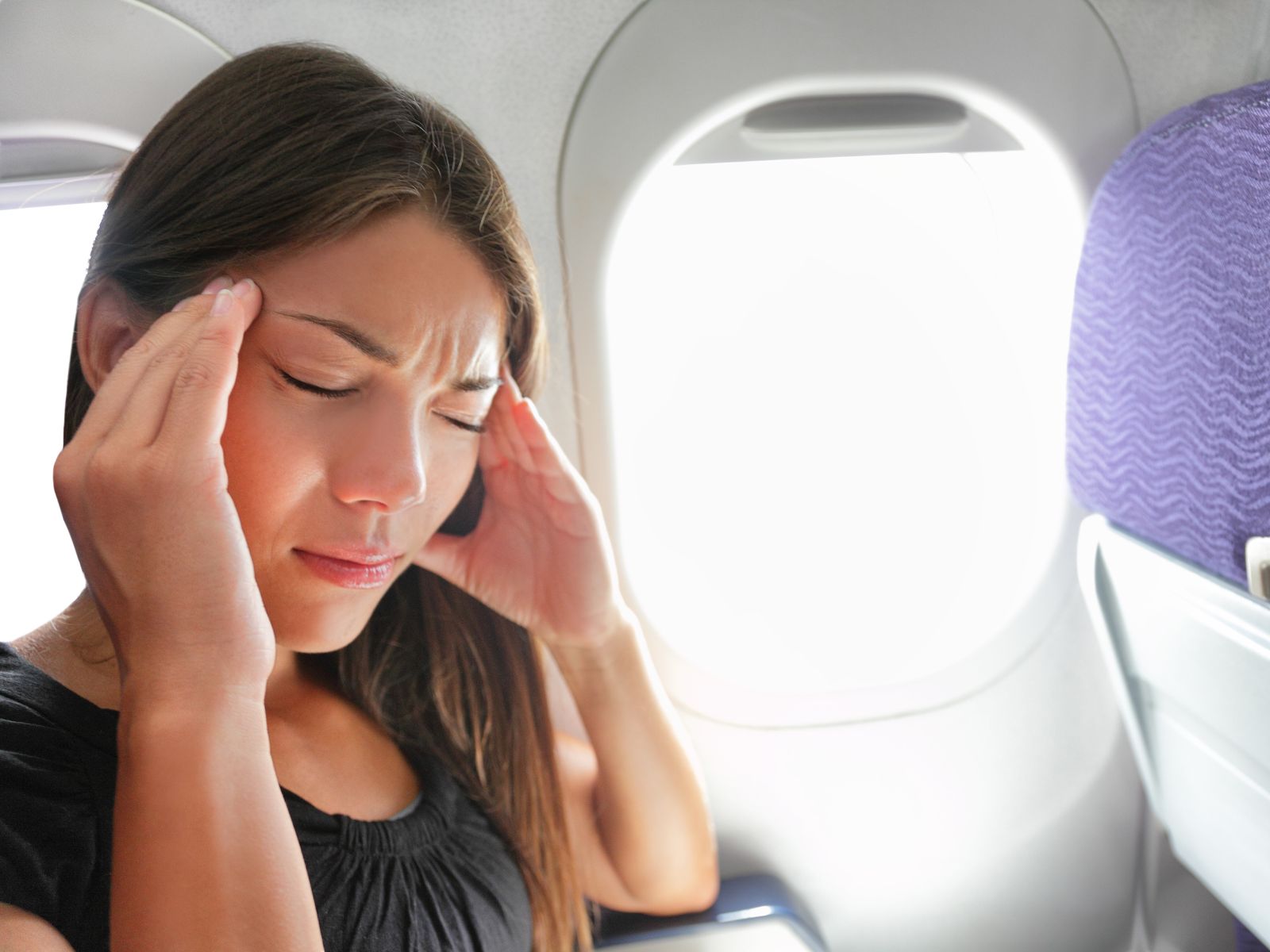Traveling opens new horizons and experiences, but for individuals with ear, nose, and throat (ENT) conditions, it can also pose unique challenges. From ear pain during flights to managing allergies in different climates, understanding how to navigate these issues can significantly enhance your travel experience. In this guide, we'll explore common ENT issues faced by travelers and provide practical tips to ensure a smoother journey.

Common ENT Issues Faced by Travelers
Travelers often encounter several ENT issues, including:
- Ear Pain and Discomfort During Flights: Due to changes in air pressure during takeoff and landing.
- Motion Sickness: Traveling on planes or boats can be really challenging for people who experience motion sickness.
- Ear Infections: Triggered by water exposure (swimming, diving) or changes in climate.
- Nasal Allergies: Reacting to different environmental allergens.
- Dry Air: Especially noticeable in airplanes and hotels, leading to dry nasal passages and throat.
- Sore Throats: Resulting from exposure to different climates or air conditioning.
- Vocal Cord Strain: Caused by frequent or loud speaking in noisy environments.
- Altitude and Climate Effects: Such as sinus congestion at high altitudes or in dry climates.
Pre-Travel Preparations for Individuals with Chronic ENT Conditions
If you have chronic ENT conditions, consider these preparations before your trip:
- Consult Your ENT Specialist: Ensure your conditions are stable and get advice on managing them during travel.
- Medication Stock: Carry sufficient prescribed medications, including nasal sprays, and decongestants for emergencies.
- Medical Records: Have copies of your medical history, allergies, and prescriptions handy.
- Travel Insurance: Ensure coverage includes medical emergencies related to your ENT conditions.
Understanding Ear Pain During Flights
Ear pain during flights is common due to rapid changes in air pressure. To alleviate discomfort:
- Swallowing: Chew gum or swallow frequently during takeoff and landing.
- Yawning: Helps open the Eustachian tubes, equalizing pressure.
- Earplugs: Specialized earplugs designed for air travel can regulate pressure changes.
Dealing with Motion Sickness
Motion sickness, characterized by nausea, dizziness, and vomiting, can also impact travelers with ENT issues. To minimize its effects:
- Seat Choice: Choose a seat over the wings of the plane or in the middle of a ship to reduce motion sensations.
- Sleeping and Eating: Migraine and motion sickness have overlapping causes and often, the triggers for headaches and migraine can also make motion sickness more likely. This includes being hungry, feeling tired, and an increase in sensory stimuli like lights and sounds. So, get good sleep and eat regular, healthy meals.
- Horizons: Focus on distant scenery or the horizon to help stabilize your inner ear balance.
- Medications: Antihistamines, antinausea medications, or medications specifically for motion sickness can also be effective—consult your doctor for the best options.
Preventing Ear Infections While Traveling
For those prone to ear infections, especially from water exposure:
- Ear Protection: Use earplugs or a swimmer's ear solution when swimming or diving.
- Avoid Cold Air Blasts: Direct exposure can aggravate sensitive ears.
- Dry Ears Thoroughly: After swimming or bathing, to prevent moisture buildup. But stay away from Q tips!
Managing Nasal Allergies in Different Climates
Traveling to new environments can trigger nasal allergies:
- Research Allergens: Know local pollen seasons and allergens.
- Allergy Medication: Carry antihistamines or nasal corticosteroids.
- Nasal Irrigation: Use saline sprays to cleanse nasal passages.
Coping with Dry Air in Airplanes and Hotels
Dry air can irritate nasal passages and throat:
- Hydration: Drink plenty of water throughout your journey.
- Saline Nasal Sprays: Keep nasal passages moist and prevent dryness.
- Humidifiers: Consider portable humidifiers for hotel rooms.
Preventing Sore Throats in Different Climates
Changes in climate or air quality can lead to sore throats:
- Stay Hydrated: Drink warm liquids like tea with honey.
- Throat Lozenges: Soothe irritation and keep throat moist.
- Avoid Smoking and Irritants: Minimize exposure to pollutants.
Protecting Vocal Cords During Extended Speaking
For frequent speakers or performers:
- Voice Rest: Take breaks and avoid excessive strain.
- Hydration: Drink warm, non-caffeinated fluids to keep vocal cords lubricated.
- Avoid Loud Environments: Use a microphone if speaking in noisy settings.
Managing Effects of Different Climates and Altitudes
Changes in altitude and climate can affect sinus and ear pressure:
- Prepare for Altitude Changes: Nasal decongestants can help equalize pressure.
- Sinus Irrigation: Use saline rinses to prevent congestion.
- Protect Ears: Use earplugs in windy or cold environments.
Importance of Hydration for ENT Health
Proper hydration is crucial for maintaining mucosal health:
- Drink Water Regularly: Especially in dry environments or during flights.
- Avoid Excess Alcohol and Caffeine: Which can dehydrate the body.
Traveling with ENT conditions requires foresight and preparation, but with the right strategies, you can minimize discomfort and enjoy your journey to the fullest. Prioritize your health by consulting with healthcare professionals, carrying necessary medications, and taking proactive steps to manage specific challenges associated with ear, nose, and throat issues. By doing so, you can turn potential obstacles into opportunities for memorable experiences around the globe.
Safe and healthy travels!




